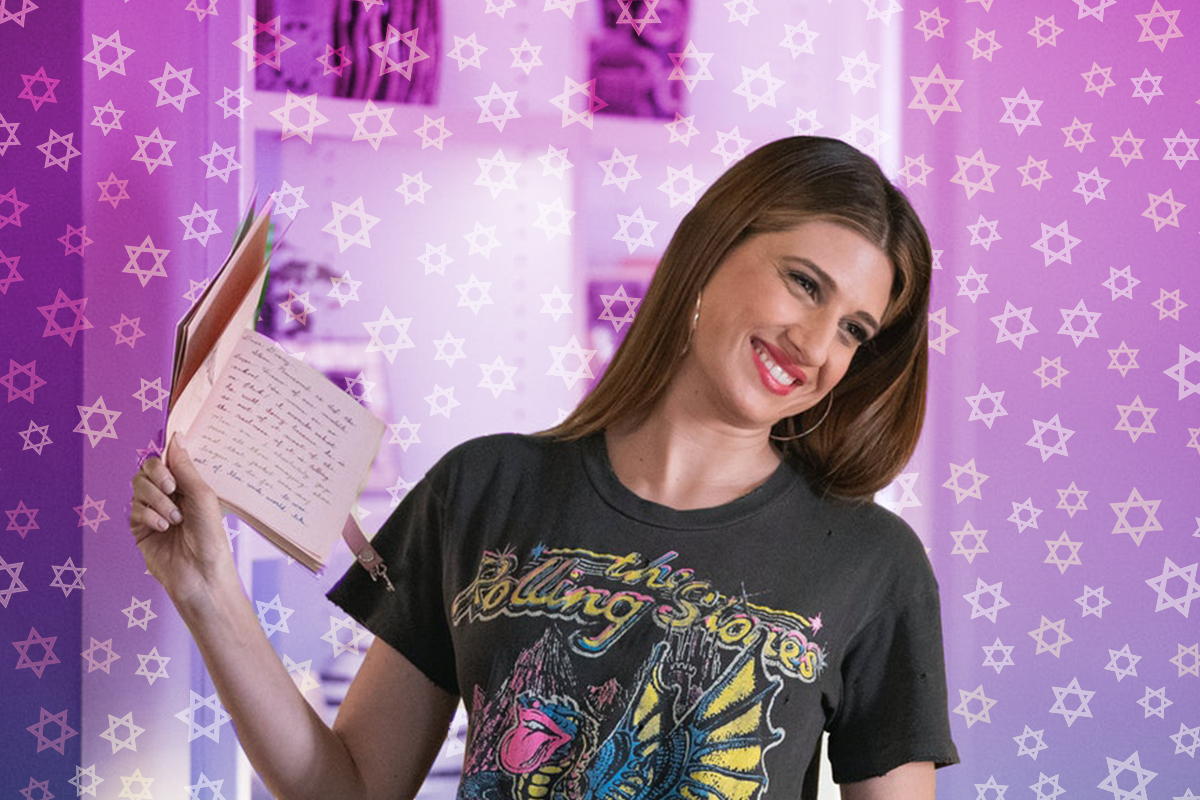Nomi from grown-ish, played by Jewish actress Emily Arlook, is a bisexual Jewish woman in college. You would think I’d be ecstatic to see a fellow Jewish character my own age reflected on screen. Instead, I find myself disappointed at every offhand comment from Nomi and other characters about her Jewishness.
While Nomi’s bisexual identity gets multiple, intricate story arcs — which is absolutely incredible — her Jewish identity is superficial, seemingly used solely to boost the show’s diversity. It irks me.
A spinoff of black-ish, grown-ish centers on Zoey (Yara Shahidi) attending college. It chronicles her journey to adulthood alongside her diverse group of Breakfast Club-esque friends. The second half of season 3 is beginning to air, which is an opportunity to (hopefully) see a Jewish storyline for Nomi.
Grown-ish is a show that prides itself on breaking down barriers and being inclusive, which is why it is hard to watch when they handle Nomi’s Jewishness so poorly. When we meet Nomi for the first time, we see a picture of her bat mitzvah, which would be fine if the voiceover wasn’t describing her as “not your typical Jewish American Princess.” It could be argued that the script was reclaiming the term “JAP” for its implied self-assuredness. There have been plenty of arguments over the years attempting to do just that. Still, by prefacing the phrase with “not your typical,” the writers are relying on the classic “privileged, spoiled Jewish girl who never worked a day in her life” definition, leaning on stereotypes of wealthy Jews. Not all Jews are white, nor do all Jews have a high socioeconomic status. Yet, here we have Nomi: a white Jewish girl from affluent, southern Connecticut representing us onscreen.
Later in the first season, the writers exploit Nomi’s Jewishness during the 11th episode, “Safe and Sound.” The other main characters — Zoey, Aaron, Luca, Jaz, Sky, Ana, and Vivek — are commiserating about losing a Black dorm, somewhere they could safely congregate and celebrate their heritage. As the only white main character, Nomi can’t directly relate to the struggle of racism in America, yet she still attempts to insert herself into the conversation using Jewish experiences.
“I don’t think anybody is more oppressed than the gays. And don’t even get me started on my other people, the Jews,” Nomi says. “My people have dealt with a lot of oppression.”
The other characters turn to America’s history of enslaving African-Americans to juxtapose Nomi’s statement and support their position, starting a round of “oppression Olympics,” a practice that detriments all parties involved. Yes, Jewish oppression is valid, as is the history of antisemitism Jews have faced, but it shouldn’t be equated to American anti-Black racism. On top of that, the writers diminish Nomi’s Jewishness by making her continued desire to discuss the history of Jewish oppression the punchline of the entire scene.
Maybe these instances should have been expected. The backdoor pilot — the episode of black-ish with Zoey as the protagonist, preempting her spinoff — for grown-ish set a problematic precedent for Jewish characterization on the show. Zoey just happens to become best friends with Miriam, a Jewish girl, who she meets during freshmen orientation. How do we know she’s Jewish? Miriam tells us, while defending herself from being labeled a racist, essentially claiming that Jews can’t perpetuate racism. It undercuts the intersectionality of the Jewish community and harkens back to the problems with oppression Olympics. While Miriam doesn’t recur as a character on grown-ish, Nomi replaces her. One white Jewish girl for another.
Treating Jews as a box to check on a list of visible minorities doesn’t make me feel valued. Just because a character is Jewish doesn’t make them a positive representation of Jewish people. Nomi doesn’t need to be perfect or reflect the exact way I experience my Jewish identity; I just want to witness her journey as she comes into her full self as a complex Jewish woman.
College is a formative time in a young Jewish person’s life: some are discovering their Judaism for the first time, some are straying from their more observant roots, and others are finally finding community. These instances would make for great stories while adding depth to Nomi’s character.
I hope the writers will write a Nomi that navigates the other facets of her identity just as she does her sexual orientation. They should follow through on their cause of acknowledging and celebrating intersectional identities, and stop discounting Nomi’s Jewishness while simultaneously using it as a punchline. There are funnier jokes to make than calling the place on campus where many Jewish guys hang out “Little Boca.” I want to see a character whose Jewish experience I can relate to. Show me Nomi’s Jewishness. Don’t just tell me.



